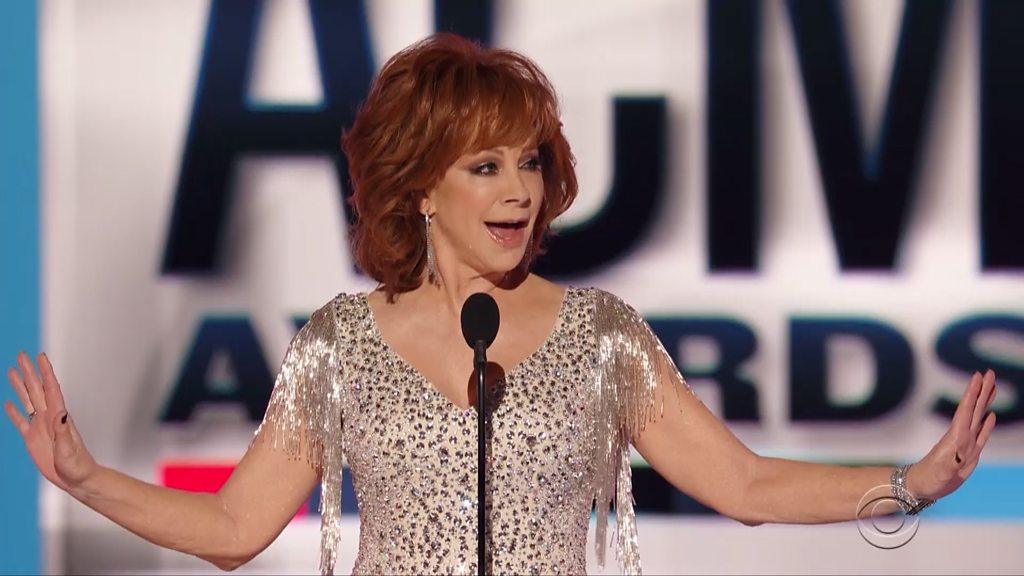Maren Morris: Country music has a problem with sexuality
- Published
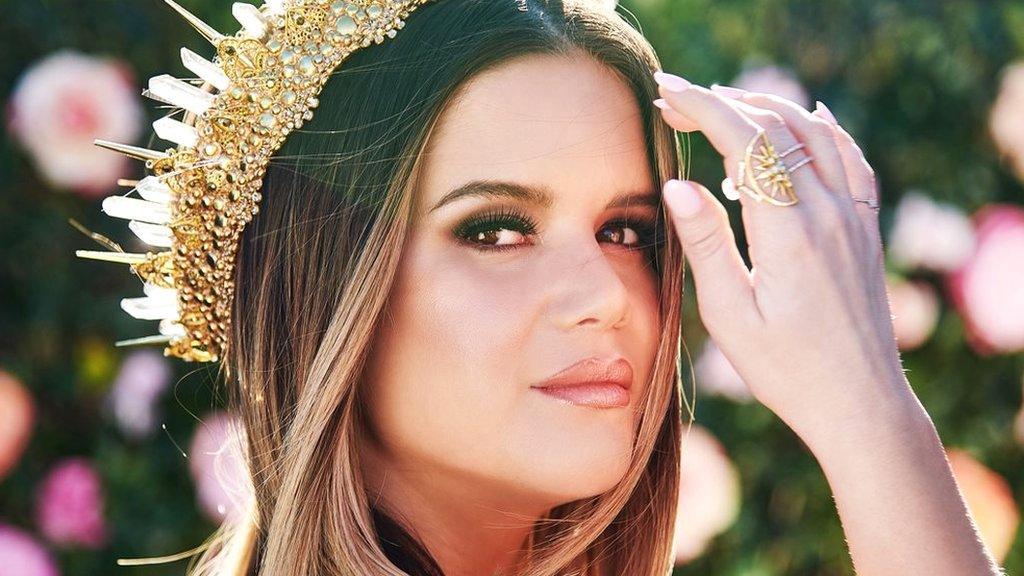
The singer has upset the conservative country establishment by singing about smoking weed and gun control
Women in country music are offered two potential paths, says Maren Morris.
"The stereotype is you've either got to be this religious, virginal conservative, or the wronged woman burning the house down."
But Morris, who grew up listening to Chaka Khan and Beyoncé as much as Shania Twain and Dolly Parton, is having none of it.
"People in pop and R&B are confident and sexy and sexual, and they're celebrating it - so why don't we, in country, write these songs?"
Instead of just posing the question, she provides the answer - on a new album full of come-hither moments inspired by her marriage to fellow musician Ryan Hurd.
It's there in RSVP, external, a slinky R&B-tinged track that's heavily indebted to TLC, and it's there in the lovelorn ballad Make Out With Me, external, which was inspired by the "drunk voicemails" she'd leave her husband when he was out on tour.
"It's just a really fun, sexy song about wanting to jump someone's bones," she laughs. "Real life stuff!"
For anyone used to the carnal abandon of Rihanna or Janet Jackson, it's pretty tame stuff. But Morris stands out in a genre that's been strangely (some might say predictably) resistant to progressive, feminist lyrics. Or just women in general.
According to one study, external, female artists accounted for just 11.3% of the music played on US country radio last year, down from 33.3% in 2000. Even Kacey Musgraves, whose trippy, mellifluous Golden Hour won album of the year at the Grammys, has been starved of radio play, apparently because her lyrics touch on topics like casual sex, drug use, toxic masculinity and queer acceptance.
"As a woman in this industry, I wish that radio would come into this century and honour the the songs that are actually popular," says Morris - who deliberately called her second album GIRL to "push some buttons" in the notoriously conservative country establishment.
Allow YouTube content?
This article contains content provided by Google YouTube. We ask for your permission before anything is loaded, as they may be using cookies and other technologies. You may want to read Google’s cookie policy, external and privacy policy, external before accepting. To view this content choose ‘accept and continue’.
"I was looking at the country radio chart in the US and, for the first time in 20 years, there were no women in the top 30," she says.
"Then I took a closer look at all the dudes and the titles of their songs, and the word 'girl' was used in more songs than there were actual girls on the chart.
"So I was like, 'I'm gonna name this album, Girl; and [the song] Girl is going to be my first single.' Just to put a middle finger up to that statistic.
"And ironically, in the States, on the country chart, Girl has been my fastest-rising single."
The star was emboldened while recording her album by the success of The Middle, a giddy pop smash she recorded with Russian DJ and producer Zedd, which spent five weeks in the top 10, went double platinum in the US and earned three Grammy nominations.
"It became way bigger than we all assumed or anticipated," says Morris - who was one of 12 vocalists considered for the track (she beat bigger names like Anne-Marie and Camilla Cabello to get the job).
Allow YouTube content?
This article contains content provided by Google YouTube. We ask for your permission before anything is loaded, as they may be using cookies and other technologies. You may want to read Google’s cookie policy, external and privacy policy, external before accepting. To view this content choose ‘accept and continue’.
The song's success, combined with a support slot for One Direction star Niall Horan, opened the singer's eyes to new possibilities.
"I went to South America on that tour for the first time and it was really amazing to have thousands of Chileans know the words to The Middle.
"It really brought into focus where I'd like to take my music from now on. The world is so big, and there's so many places I want to go."
Those South American shows confirmed something she'd instinctively known at the start of her recording career in 2015.
"A lot of country artists just get really comfortable only touring the States," she says, "because it's hard if you're already successful to come over to Europe and have the same production, or attract as many fans. But before I even signed my record deal, I told them, 'I want a presence in the UK, and I want that right off the bat.'"
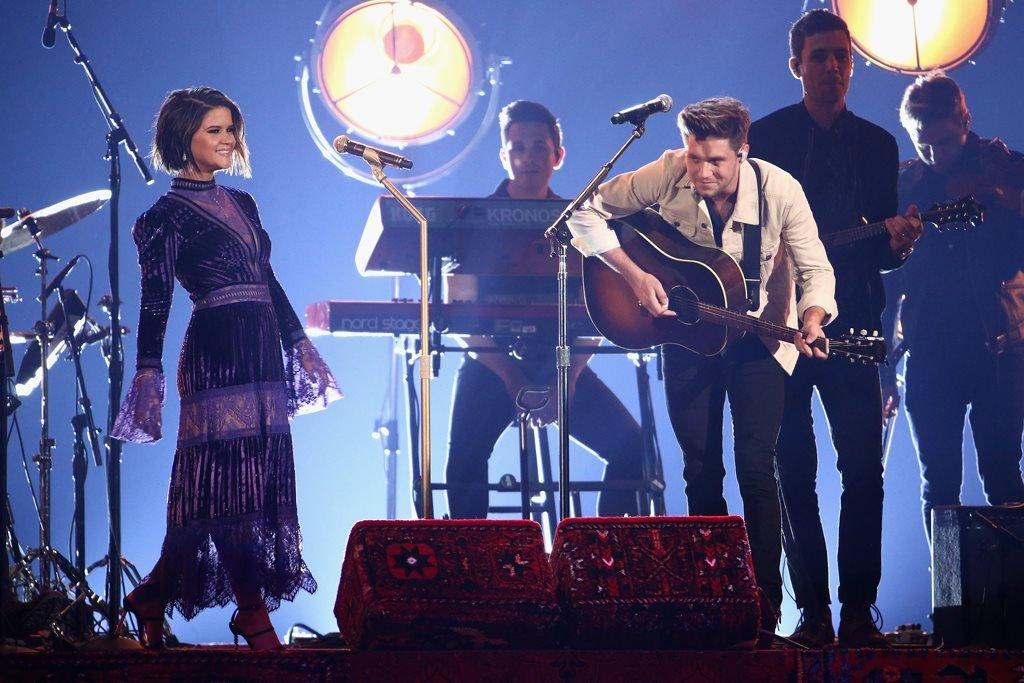
Morris duetted with Niall Horan on his track Seeing Blind
The decision paid off. Last month, Morris fulfilled a childhood ambition by playing a sold-out show at London's Royal Albert Hall, external, complete with a string section.
"It felt like a lucid dream," she tweeted the day after the concert. "I cried when I got back to the hotel."
On stage, she recalled how UK audiences were the first to sing back the words to her breakout single My Church (a hymn to driving down the highway blasting out Hank Williams on the car radio) and introduced The Middle as the song that "changed my life last year".
During the encore, Morris shot cotton candy-flavoured bubbles into the audience ("we're very extra on this tour"). In the US, she also augments the show with rainforest-scented smoke, but that was unavailable for her UK dates.
"I didn't know we could get scented fog until my production manager mentioned it," she explains. "I was like, 'What are my options?' and there were, like, a ton."
Such as?
"Well, there was gasoline and there was charred corpse - I think because the company also sells their fog for fire fighter training," she laughs. "Charred corpse-scented fog! It's really messed up!"
'Shut up and sing'
Morris plays all but one of the songs from Girl during her Royal Albert Hall show, showcasing the album's musical breadth - from the country rock hell-raiser All My Favorite, external People, to the soft-rock psychedelia of Shade, external.
That musical restlessness has made her a lightning rod for the debate over country music becoming "too pop" (whatever that means), but she deftly addresses her critics on a song called Flavor, external: "I'm cooking up my own flavor / Even if it ain't your style / You only see one layer / Original could take a while."
The song also quotes the phrase "shut up and sing", which was regularly aimed at US band Dixie Chicks in the 2000s, after singer Natalie Maines told a UK audience: "Just so you know, we're ashamed the president of the United States is from Texas".
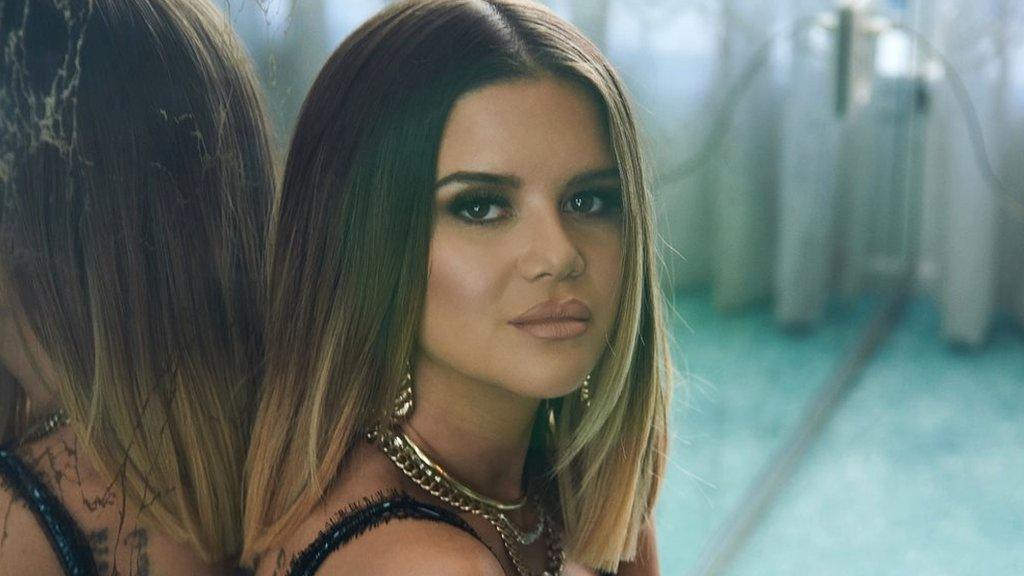
"A lot of people have veered into the pop lane because they're not getting the representation at country radio," says the star
"I love the Dixie Chicks so much," says Morris, "so I put that stupid phrase in the song because it brings me so much joy to just say, 'Hell no!'"
The 29-year-old has been on the receiving end of the insult more than once - not least after she advocated gun control in the wake of the mass shooting at 2017's Route 91 Harvest Festival.
"Anytime I've even voiced an opinion, whether it's political or social, I've been told to 'shut up and sing,'" the star says. "But it's an oxymoron. You can't shut up and sing, you idiot."
It's a typically salty response from an artist who won't back down or bow to convention.
"I get the say in how I'm perceived and how I perceive myself," she says. And if that puts off the country hardcore, then that's their loss.

Follow us on Facebook, external, on Twitter @BBCNewsEnts, external, or on Instagram at bbcnewsents, external. If you have a story suggestion email entertainment.news@bbc.co.uk, external.
- Published3 May 2019
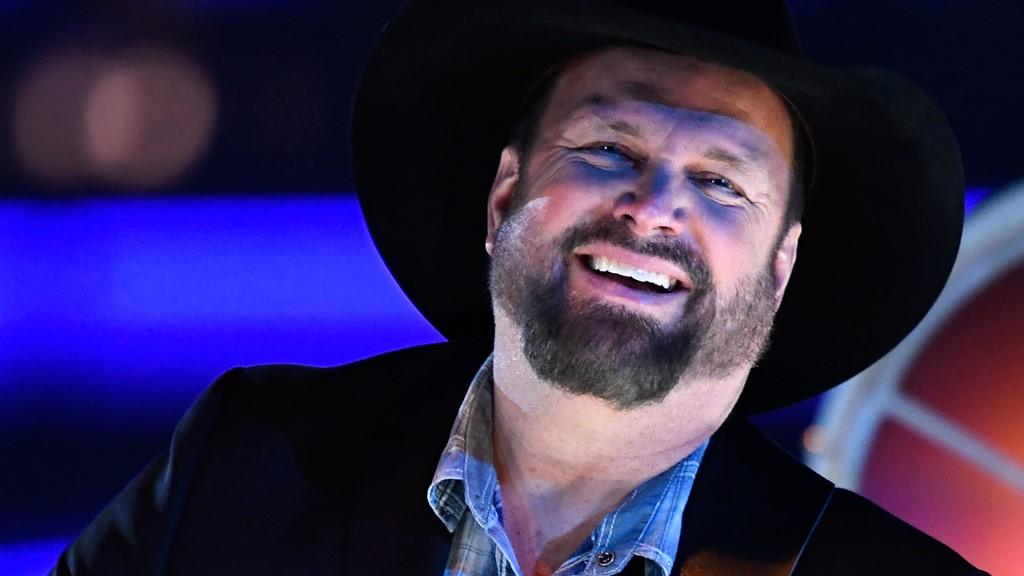
- Published12 March 2017
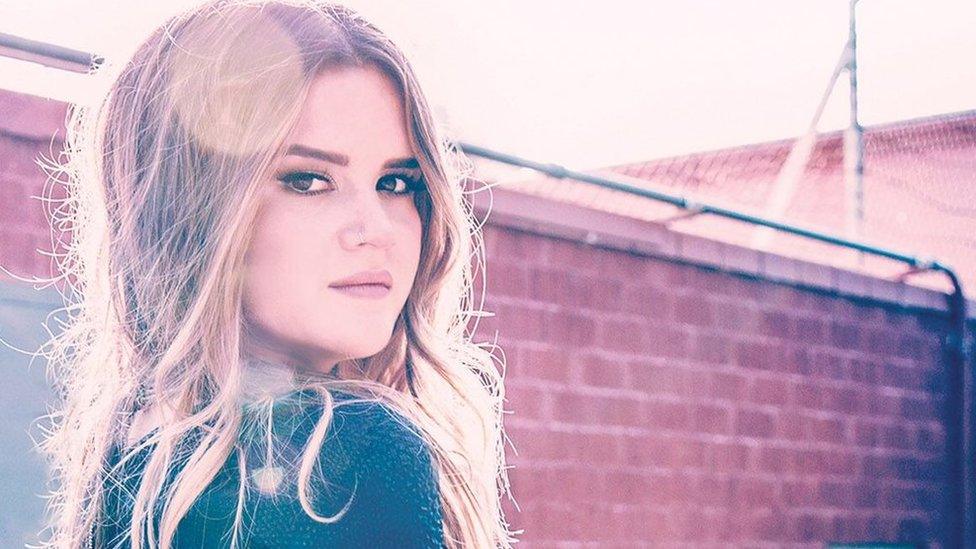
- Published24 April 2018
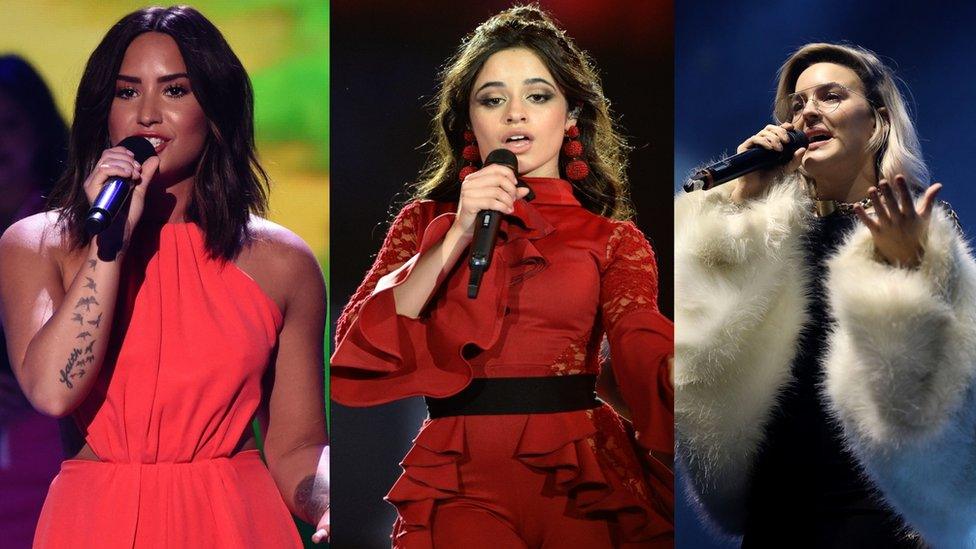
- Published8 April 2019
